IN THIS ISSUE
Henry Samueli School of Engineering School of Law
Office of Undergraduate/Undeclared Advising

IN THIS ISSUE
Henry Samueli School of Engineering School of Law
Office of Undergraduate/Undeclared Advising

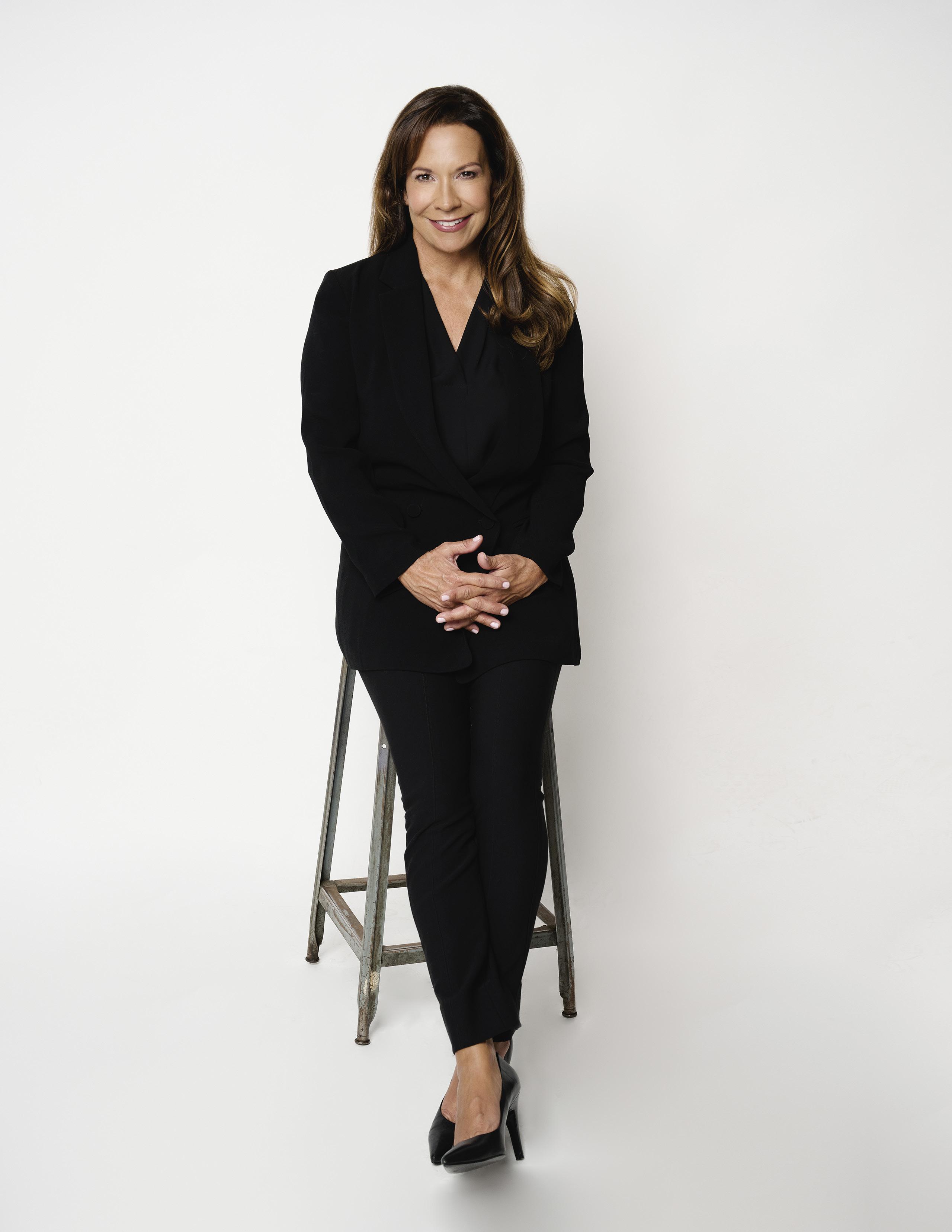
Dear Student,
Welcome to the 5th special edition of The Edge! We hope you're having a great school year and are enjoying these special editions that highlight the wonderful academic opportunities at UCI. Our team is excited to spotlight the Henry Samueli School of Engineering, School of Law, and the Office of Undergraduate/Undeclared Advising to help you learn about the unique pathways within these fields.
As you continue to think about your future, we want to prepare you with the best information possible to make informed decisions. For our team, this includes offering you a refresher on the step-by-step guide to choosing a major, a list of key terms for each of the schools mentioned, and an indepth review of the available majors, along with student spotlights and reflections. The Henry Samueli School of Engineering is focused on advancing engineering discovery and training the next generation of global engineers. With six departments to choose from, you are sure to find a specific field that interests you. The School of Law focuses on public service with local, national, and global communities, as well as a commitment to diversity in the legal field. They feature advanced degree programs as a next step after you've completed your undergraduate studies. Lastly, we have the the Office of Undergraduate/Undeclared Advising pathway, which is best for students who enter UCI without a declared major or are transitioning between majors. These students receive support in developing their academic and career goals through individualized advising plans.
As always, we encourage you to utilize the reflection prompts to think about your key takeaways from this edition. We thank you for reading and please take care.
Happy reading!

Stephanie Reyes-Tuccio, Ph.D. Vice-Provost
by Jody Cajudo, M.S., former Program Coordinator, EAOP, UC Irvine
To receive a degree or certificate from a college or university, a student must declare a major first.
A major is a specific area of study that a student chooses to focus their course of study on. We recognize that selecting a major is a challenging task. So, whether you are 99% sure of your choice already or need help figuring out where to start, we encourage you to use the following steps to select a major that is right for YOU!
The more you understand yourself, the easier it is to identify your goals and ways to achieve them. Assessments are a great tool to learn more about yourself and your core values. Consider taking any of these assessments to help you get started: Myers-Briggs & 16 Personalities, Value Sort, or CliftonStrengths. The results you get are personal to you and can help you uncover majors that align with your strengths and values. After completing an assessment, we encourage you to connect with a trusted adult, teacher, or counselor to reflect on your results and understand their meaning
Step 2: Gather Information and Explore Options
Research majors at different Research majors at different universities and make a list of your interests. You may also work backward! Explore job descriptions of careers that interest you and see what majors are most common within the field. We
encourage you to discuss possible majors of interest with your school counselor, teacher, mentor, or academic advisor. These individuals can assist you in finding and learning about each institution's different opportunities.
Step 3: Evaluate and Make Your Major Decision
Put together all the information you gather from Steps 1 & 2 and create a list of two or three potential majors. We then encourage you to meet with an academic counselor who can help you evaluate the information you have gathered and offer suggestions on your next steps.
Choosing a major requires you to be proactive! Select student activities, internships, volunteer work, and/or part-time employment that can help you further develop skills in the areas that interest you. This is a great way to find out first-hand whether or not you can see yourself doing this in the




future. Talk to people who work in the career fields you are considering and see if there are any opportunities they recommend you get involved with throughout the school year or during the summer.
You will be prompted to select a major on your college application(s). Keep in mind that many students change their major while in college. If you are unsure about your major, selecting "undeclared" or "undecided" on your college application and declaring your major later is okay. This gives you a chance to take some time and explore. Once you declare your major, you are encouraged to meet with an academic advisor from the college or school at least twice a year to remain on track to complete your degree.

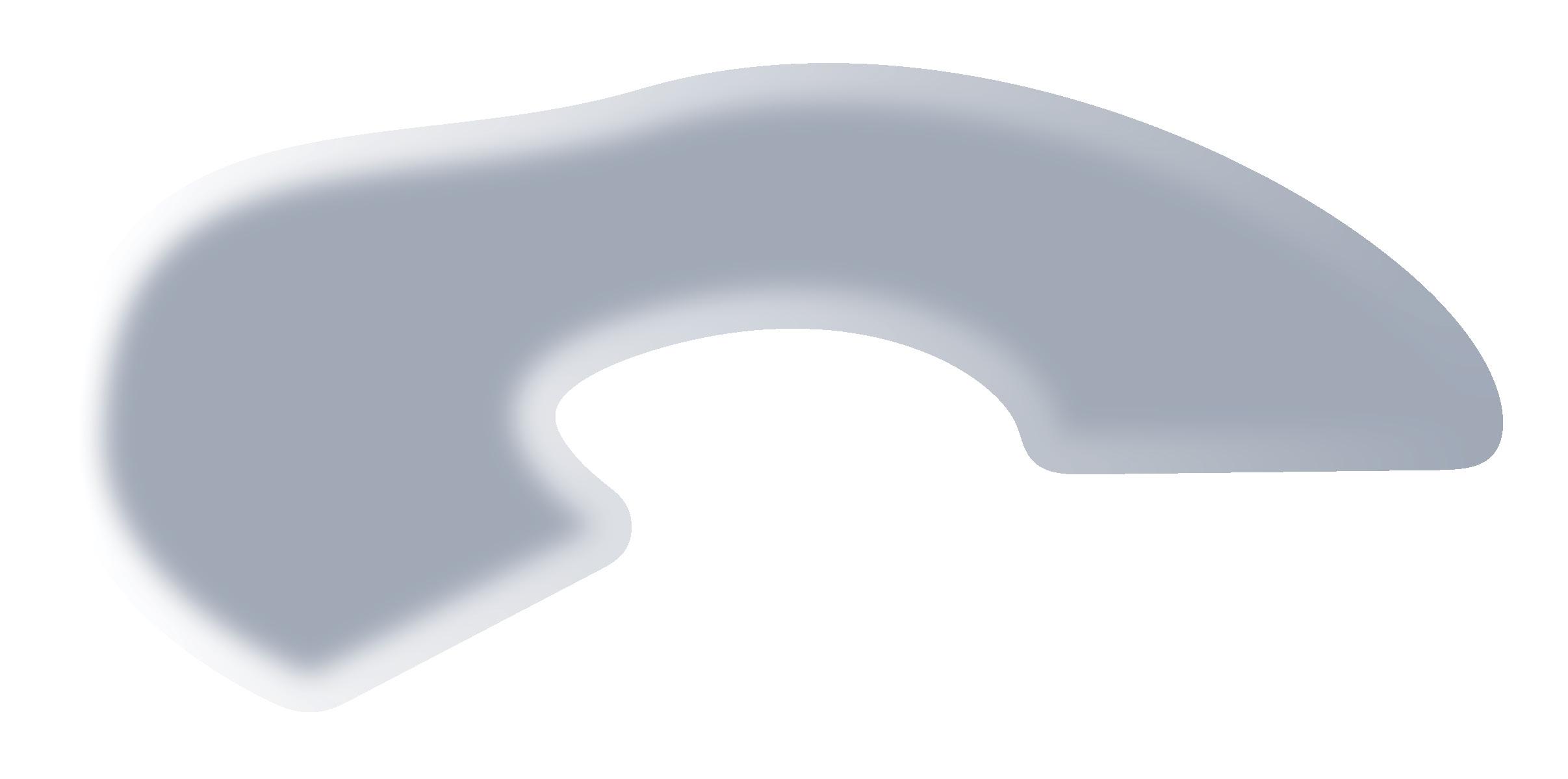
by Ashley Cheri, Ed.D., Manager of P-20 Programs, UC Irvine
University of California, Irvine (UCI) offers many Major options. But, before you choose a major, we wanted to provide insight into how universities are organized and structured.
Within every college or university, there are schools or academic units. An example is the Paul Merage School of Business, School of Education, or School of Humanities at the University of California, Irvine (UCI). You will find colleges at California State University, Fullerton, like the College of Health and Human Development or College of Health Sciences.
Now, within each school, there are Majors you apply to, and this is where the specifics of choosing a Major come in; it is important that you know the difference! For example, when you apply to college, you might apply to UCI and choose to major in African-American Studies; this means you are applying to the University of California, Irvine, School of Humanities, with a major in African-American Studies.
It might sound confusing now, but don't worry; it will make more sense when you arrive. In the meantime, this magazine intends to help you understand the basics. With that said, here is a snapshot of all the schools at UCI, and in each edition, you will learn more about the majors offered within each of these schools:
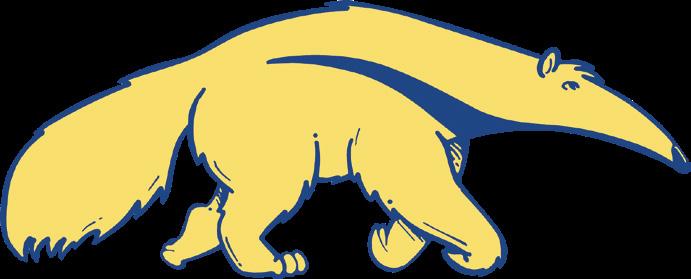
Claire Trevor School of the Arts Charlie Dunlop School of Biological Sciences
Paul Merage School of Business
School of Education
Henry Samueli School of Engineering
School of Humanities
Donald Bren School of Information & Computer Sciences
Interdisciplinary Studies
School of Social Ecology
School of Social Sciences
School of Physical Sciences
The Susan & Henry Samueli College of Health Sciences
School of the Arts
School of Biological Sciences
School of Business
School of Education
School of Engineering
School of Humanities
School of Information & Computer Sciences
Interdisciplinary Studies
School of Social Ecology
School of Social Sciences
School of Physical Sciences
College of Health Sciences
by K-16 Career Pathways Team, UC Irvine
As you read through the magazine and learn about UCI's academic units and major options, here are some key terms and definitions that will help you better understand the available opportunities for students at UCI.
Types of Degrees, Majors, Courses, & Students
Associate's Degree: an undergraduate academic degree awarded by community colleges upon completion of a course of study lasting two to three years. Students may choose to transfer to a four-year institution where they can earn a bachelor's degree.
Bachelor's Degree: an undergraduate academic degree awarded by colleges and universities upon completion of a course of study lasting three to six years (depending on the institution and academic discipline). The two most common bachelor's degrees are the Bachelor of Arts (BA) and the Bachelor of Science (BS or BSc).
Bachelor of Arts: a type of bachelor's degree that emphasizes humanities courses with a broader range of topics. Likely more opportunities to take elective courses.
Bachelor of Science: a type of bachelor's degree that is focused on technical fields. Courses may include math, science, and labs focused on a specific major.
Double Major: when a student fulfills the degree requirements for two areas of study.
General Education (GE) Courses: a set of required courses designed to introduce students to a range of ideas and intellectual activities beyond studying a specific major. Students may complete GE courses at a fouryear institution (typically during the first two years) or a community college before transferring to a four-year institution.
Graduate Degree: an advanced academic degree in a specialized field of study pursued after obtaining a bachelor's degree.
Master's Degree: a postgraduate academic degree awarded by universities or colleges upon completion of a course of study demonstrating mastery or a highorder overview of a specific field of study or area of professional practice. Common types of master's degrees include Master of Arts (MA), Master of Science (MS), and Master of Business Administration (MBA).
Doctorate: a high-level degree earned after three or more years of graduate-level study, culminating in the creation, submission, presentation, and defense of a research dissertation. There are two types of doctoral degrees: academic (PhD) and professional (J.D., M.D., Ed.D., etc.)
Graduate Student: a student at a college or university who has earned a bachelor's degree and is pursuing an advanced academic degree.
Major: a specific area of study that a student chooses to focus their course of study during their undergraduate career.
Major Required Courses: a set of courses required to complete a specific major. These courses are in addition to the required GE courses and are typically taken during your junior and senior years.
Minor: students can explore a smaller area of study alongside their major, which may or may not be related to the major.
Post-baccalaureate (Post-bac) Program: typically a one to twoyear program for college graduates designed to support the transition to graduate school. It includes additional experiences and education to strengthen future graduate school applications and is offered by undergraduate institutions, graduate schools, and medical schools.
Undergraduate Student: a student at a college or university who has yet to earn a bachelor's or equivalent degree.
Career Assessment: often considered the first step in reflecting on your interests and identifying goals. These assessments consider your unique strengths, values, and personality to suggest possible majors and career pathways to explore further.
Career Center: a service offered to support students with their professional growth and career development. Services may include 1:1 advising, skill-building workshops, and access to exclusive resources on the following:
f Résumé and cover letter writing
f Job and internship search
f Interviewing
f Networking
f Graduate school
f Fellowships
Students may also connect with alums and employers through events such as industry panels, information sessions, and career fairs.
High school students should contact their counselors to learn more, and
students at community colleges and four-year institutions should contact their career centers to learn more.
Cover Letter: a one-page document that should accompany your résumé when applying for opportunities. A cover letter explains your interest in the role and what experiences/skills you have that make you a good fit.
Elevator Pitch: a 60-second or less introduction that overviews your education and career interests and typically ends with a question to start a conversation with someone. Elevator pitches are often used at networking events when speaking with employers or sending an introductory email for an informational interview.
Informational Interviews: conversations with individuals you reach out to through networking, where you can ask questions such as how to get experience in their industry and what a day in their life is like.
LinkedIn: an online networking platform that provides free accounts where you can create a profile, connect with people to build your network and initiate informational interviews, follow companies/organizations in your area(s) of interest, find internships/jobs, and take skill-building courses.
Mentorship: the guidance provided by a mentor, especially an experienced person in a company or educational institution.
Networking: the act of connecting with individuals who work in your field of interest and is often how students secure opportunities.
Résumé: a one-page document used to apply for internships and often submitted with college applications. Required sections include your contact information, education, and experience. Additional sections may include skills, honors/awards, leadership, activities/ volunteer, and certificates.
Apprenticeship: a system for training a new generation of practitioners in a trade or profession with on-the-job training and often some accompanying study. Apprenticeships can also enable practitioners to gain a license to practice in a regulated occupation.
Capstone Project: a final project for college students to demonstrate the knowledge and skills gained in their program.
Fellowship: a short-term, paid training opportunity sponsored by a specific organization. Individuals perform research and develop skills to apply professionally. The application process tends to be competitive. Organizations sponsor fellowships for multiple reasons.
Internship: allows students to experience work cultures and environments before beginning their careers. They can also gain entry-level exposure in a particular industry or field. Internships focus on participating in work environments to fulfill a degree or training program requirement.
Job Shadowing: a type of on-thejob training that allows an interested employee to follow and closely observe another employee performing the role.
Micro-internships: a short-term project where an employer pays you for completing small assignments typical to what new hires or interns would complete. Micro-internships can help you explore different industries, organizational cultures, and meet new people.
Practicum: field experience where college students can apply what they've learned in their classes to realworld environments.
Work-based: development and assessment of skills within and directly related to the workplace.
Competitive Admission: due to the high demand and limited spots for a major/ program, the major/ program has competitive admission criteria. This might include higher GPA requirements, specific prerequisite courses, or even a separate application process for the major/ program.
Intended Major: the primary field of study you plan to pursue during college.
Major Alternatives: majors students will select in addition to their intended major.
Major Preparation: additional inside and outside-the-classroom experiences that assess the student's capability to succeed in the major/ program.
Selective Major: the university's major/ program is highly applied, and due to limited resources (i.e. faculty, physical space, equipment, etc.), the university has a limited number of admissions to grant for the major/ program.
Have you ever wondered about the incredible advancements and innovations that shape the world around us? From the technology in your smartphone to the bridges connecting cities, the field of engineering is at the heart of it all. Engineering is a crucial driver of progress and innovation in our modern world, and the Samueli School of Engineering at the University of California, Irvine (UCI) stands at the forefront of this dynamic field. The school is dedicated to empowering the next generation of engineers through education and research that addresses real-world challenges.
With over 150 faculty members who are recognized for their contributions to various engineering disciplines, the Samueli School offers a rich academic environment. We serve over 5,400 students, providing a curriculum that balances fundamental engineering principles with practical research and hands-on experiences.
The school comprises six departments: biomedical engineering, chemical and biomolecular engineering, materials science and engineering, civil and environmental engineering, electrical engineering and computer science, and mechanical and aerospace engineering. Each department offers a range of undergraduate and graduate programs aligned with the school's mission to foster innovation and creativity.
UCI engineering students are actively involved in projects that contribute to society. A notable example is our Freshman Experiential Learning Program, launched in 2012. This program offers undergraduates hands-on experiences from the beginning of their time on campus. Working collaboratively in multidisciplinary teams, students gain real-world insights into the various stages of product development, including planning, research, design, manufacturing, and evaluation. As the first program of its kind in the UC system, it provides UCI students with a valuable and distinctive competitive advantage.
Beyond the Classroom: Fostering Community and Inclusivity
Engineering at UCI extends far beyond lecture halls and labs. The school offers extensive support and extracurricular activities. Students have access to modern facilities such as maker spaces and engage with a vibrant community through various student organizations, such as the Society of Women Engineers (SWE) and the Society for Hispanic Professional Engineers (SHPE), among many others. These organizations provide a space to connect with friends who share identities and passions for engineering while also enhancing your professional development.
Support services like the Samueli School's Undergraduate Student
Affairs Office and the Stacey Nicholas Office of Outreach, Access, and Inclusion work to ensure every student finds a welcoming home in engineering and that they have the tools, guidance, and resources they need to thrive.
At UCI's Henry Samueli School of Engineering, students not only gain a robust education but also contribute to meaningful engineering solutions that have a lasting impact on society. The school is committed to nurturing skilled, innovative engineers who are ready to address the complexities of the modern world.
So, are you ready to be part of a community that doesn't just dream of a brighter future but actively engineers it?
f You can begin now by exploring your interests and building a foundation in math and science.
f Engage in extracurricular activities that challenge you and allow your creativity to flourish.
f Consider joining science or engineering clubs in your school or community to get a taste of what the field has to offer.
f Talk to your teachers about summer camp opportunities in science and engineering.
Your adventure into the exciting world of engineering awaits!



















































by Emmanuel Miranda, former Specialist, EAOP, UC Irvine

























f Bachelor of Science in Computer Science and Engineering






f Bachelor of Science in Electrical Engineering
f Engineering with a concentration in Materials and Manufacturing Technology






f Bachelor of Science in Environmental Engineering


































Founded in 1965, the School of Engineering started with three faculty members and 75 students in the program. Now present today, the Samueli School of Engineering serves more than 5,400 students, providing various learning opportunities such as research and hands-on experience. The school aims to help educate and train the next set of global engineers by fostering human connections and rich experiential learning opportunities. The Samueli School of Engineering faculty includes professors who have achieved worldwide recognition for their research and outstanding teaching.

















f Materials Science and Engineering

f Bachelor of Science in Materials Science and Engineering













f Mechanical and Aerospace Engineering


f Bachelor of Science in Mechanical Engineering
f Minor in Biomedical Engineering
f Minor in Materials Science and Engineering







f Networked Systems






Professional Programs















Undergraduate Degrees:

Want to continue your education? Pursue a graduate education and earn a MS or Ph.D. in the following departments:

















f Master of Embedded & Cyber-physical Systems
f Master of Engineering




















f Bachelor of Science in Aerospace Engineering
f Bachelor of Science in Biomedical Engineering

f Bachelor of Science in Biomedical Engineering: Premedical

Research Programs




f Biomedical Engineering


f Chemical and Biomolecular Engineering




f Civil and Environmental Engineering





f Bachelor of Science in Chemical Engineering
f Bachelor of Science in Civil Engineering


f Bachelor of Science in Computer Engineering




f Computational Science Joint Doctoral Program




f Electrical and Computer Engineering















































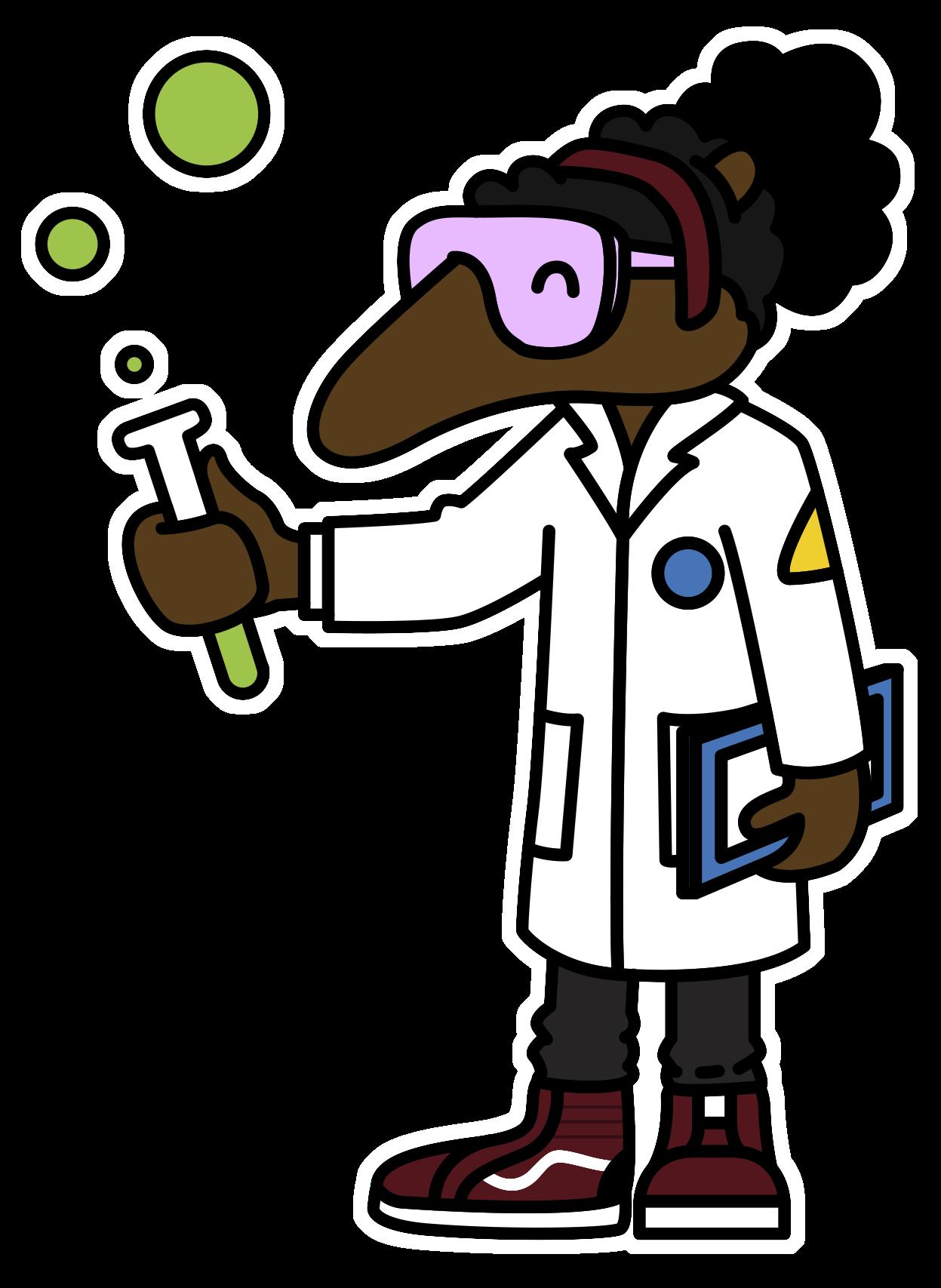






















Name: Vanessa Renderos
Major: Aerospace Engineering
Pronouns: she/her
Class of: 2025
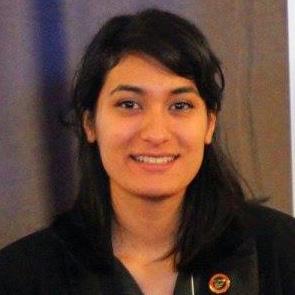
At a young age, I was fascinated by how our world works and how things are made. Growing up, one of my favorite TV shows was "How It's Made". It led to my curiosity about engineering and manufacturing. Entering high school, I enjoyed my mathematics and sciences courses, especially Calculus and Chemistry. As the end of my senior year approached, I was unclear about my choice of major or school. I grew up in a low-income household, and financially supporting my family was always a top priority. Many of my high school classmates were entering top universities as I was entering the workforce full-time. After a few years, I decided to return to school and took courses relating to my interests: design, manufacturing, and engineering. My higher education journey began at Irvine Valley College (IVC) when I signed up for Design Model Making courses. A mentor of mine, Professor McKim, introduced me to the Computer-Aided Design (CAD) program that IVC offers to students interested in design and engineering. After taking my first CAD course, I immediately fell in love with creating blueprints and models and seeing how things are built and it motivated me to pursue a career in engineering. After two years of completing the CAD program courses, Matthew Wolken, Engineering Department Chair, encouraged me to transfer to the Samueli School of Engineering at UC Irvine to pursue a degree there. My choice to transfer to UCI in 2022 was scary but exciting! Along the way, I met new friends, experienced a very different school environment, and challenged myself in many ways. As I continue to navigate through my last courses as a Senior, I always remember where my passions originated and how they molded me into the person I am today. I currently work part-time for a manufacturing company in the aerospace department. I look forward to joining the workforce in aerospace full-time after graduation.
Name: Miguel Angel Guzman
Major(s): Computer Engineering
Pronouns: he/him
Class of: 2024
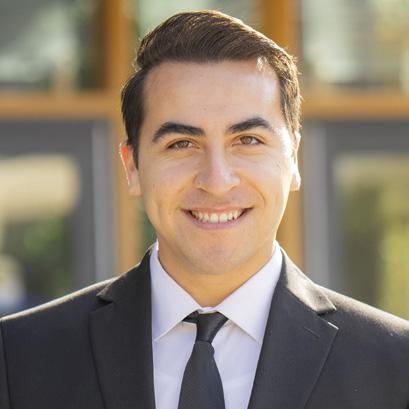
While I was in high school, like many others, I wasn't sure what I wanted to major in. Before I graduated high school, I decided to stick with Electrical Engineering because I believed that the field of technology would only grow in demand. I attended my local community college, Oxnard College, and got accepted for an internship after my first year. It was during this internship that I met someone who was studying Computer Engineering, and I felt compelled to switch my major to that because I felt that it was a great middle ground between both hardware and software aspects of engineering.
I eventually graduated and transferred to UCI. If I'm being honest, I don't have a singular reason for choosing UCI. I just had a gut feeling and ran with it. Not to mention, it wasn't easy to check out colleges during the pandemic!
During my time at UCI, I was a member of the Society of Hispanic Professional Engineers (SHPE) and served as its Internal Vice President and President. Being part of SHPE greatly enhanced my soft skills, including communication, team management, data management, and even conflict resolution. It was also an amazing space for me to create meaningful friendships.
Now that I have graduated from UCI, I want to offer some advice for future college students. Be ready to step outside of your comfort zone and put yourself out there as much as possible. Success is only achievable if you step outside of your comfort zone. Join a club, apply for internships, connect with a professional, and, of course, never be afraid of asking for help.
by School of Law, UC Irvine
Opened in 2009, UC Irvine School of Law is a top law school that provides an innovative curriculum, prioritizes public service, and champions equity within the legal profession. At UC Irvine Law, we are driven to improve our local, national, and global communities by grappling with important issues as scholars, practitioners, and teachers who are preparing the next generation of leaders. In that spirit, our different community pipeline programs encourage students from communities underrepresented in the legal profession to pursue careers in law.
Saturday Academy of Law (SAL)
More than 1,750 ninth-graders from economically challenged communities have completed this six-week program since 2009. Students sharpen their reading, writing, and critical thinking skills while learning about law and the legal profession in preparation for college careers.
Pre-Law Outreach Program (POP)
Serving primarily first-generation college students, this summer program gives undergraduates insight into the law school admissions process while offering mentorship and guidance from UC Irvine School of Law faculty and staff, judges, law students, and practicing attorneys. Since 2010, over 550 students have completed POP, many enrolling in law school — including at UC Irvine.
Community College Pathway to Law School (formerly the 2+2+3) Initiative
Along with 29 California community colleges, 16 other undergraduate universities, and 14 other ABAaccredited California law school partners, UC Irvine School of Law is part of this innovative program that provides a clear educational pipeline
for diverse students from high schools, community colleges and four-year institutions into law schools or lawrelated careers.
In addition to our community pipeline programs, UC Irvine School of Law has strategic collaborations designed to recruit talented students and alumni to the Law School from within UC Irvine's vibrant community, as well as select nonprofit organizations and universities. These collaborations underscore our commitment to interdisciplinary excellence and to providing affordable pathways for students to advance their law school careers. Learn more about pathways to UC Irvine School of Law: https://www.law. uci.edu/admission/pathways.html.
3+3 Articulated Pathway
Our 3+3 collaborations provide highachieving students an accelerated pathway to earn both their Bachelor's and Juris Doctor degrees in six years, instead of the traditional seven, along with a $90,000 tuition scholarship over three years, available to both residents and non-residents. Collaborators include:
y UC Irvine Campuswide Honors Collegium
y UC Irvine Program in Public Health
y UC Irvine School of Humanities
y UC Irvine School of Social Ecology
y UC Irvine School of Social Sciences Scholarship Initiatives
Successful applicants admitted to the Law School will receive a $90,000 tuition scholarship over three years, available for both residents and nonresidents. Collaborators include:
y UC Irvine Samueli School of Engineering
y Point Foundation
y Thrive Scholars
To learn more about these opportunities and others, contact our Admissions team at https://www.law.uci. edu/admission/visit-uci-law.html. We look forward to meeting the next group of passionate leaders and lawyers-inthe-making who want to call UC Irvine School of Law home.
by Claudia Muro, Program Coordinator, Community College Programs, UC Irvine
UCI Law offers a dynamic and diverse array of opportunities designed to prepare students for a wide range of legal careers. It is recognized for its innovative curriculum, dedicated faculty, and commitment to public service, providing a robust legal education emphasizing experiential learning and interdisciplinary studies.
UCI Law strongly emphasizes experiential learning, ensuring students gain practical experience through clinics, externships, and pro bono work. These opportunities allow students to apply their classroom knowledge to real-world legal issues, working under the supervision of experienced attorneys and faculty members. Under close supervision in a legal professional environment, students must also complete at least one required semester in clinical education by working with actual clients.
UCI Law offers a Juris Doctor (J.D.) degree, the primary law degree required to practice law in the United States. The J.D. program at UCI Law is designed to equip students with the foundational knowledge and skills necessary for legal practice while allowing them to pursue their specific interests through various concentrations and specializations. Some areas of concentration within the major opportunities include:
f Business Law, which prepares students for legal careers in corporate law, mergers and acquisitions, securities regulation, and other business-related legal fields. Courses cover topics such as corporate finance, bankruptcy, and commercial transactions.
f Criminal Law prepares students interested in pursuing careers in criminal justice to focus on criminal law. This concentration covers substantive and procedural aspects of criminal law, including criminal investigations, trials, and sentencing.
f Environmental Law offers a comprehensive program for students passionate about environmental issues. This concentration includes environmental policy, natural resources law, and climate change law courses.
f Lastly, as technology and innovation continue to evolve, the demand for legal expertise in intellectual property has grown. The Intellectual Property Law concentration covers patent law, copyright law, trademark law, and related areas.
While UCI Law primarily offers the J.D. degree, students can tailor their education through specialized courses and certificates. These certificates allow students to gain additional expertise in specific areas of law.
f Public Interest Law is intended for students committed to serving the public good, and this certificate program offers specialized courses and experiential learning opportunities in areas such as civil rights, immigration law, and nonprofit legal work.
fInternational Law is ideal for students interested in global legal issues. It includes courses on international human rights, international trade law, and comparative law.
UCI Law also offers advanced specializations for students who wish to deepen their expertise in particular legal fields. These specializations often involve a combination of coursework, research, and practical experience, such as:
f Health Law, which covers legal issues related to healthcare policy, bioethics, and medical malpractice. It is designed for students interested in the intersection of law and healthcare.
f Tax Law, including courses on federal income tax, corporate tax, and international tax law. This specialization is ideal for students pursuing careers in tax litigation, planning, or policy.
The UC Irvine School of Law offers a rich and varied legal education, with numerous opportunities for students to specialize and pursue their interests. Whether through concentrations, certificate programs, or experiential learning, UCI Law provides the tools and experiences necessary for a successful and fulfilling legal career.
"If you choose not to believe and lack hope, you will fail every time."
—Yoda
Name: Jonathan Caceres, J.D.
Graduate Program: Juris Doctor (J.D.)
Class of: 2024
As silly as it seems, this powerful quote from Star Wars stuck with me as a young kid and has remarkably continued to apply in my life ever since. My story begins in Santa Ana, where I was born and raised with five sisters and two brothers. With my parents and siblings being Guatemalan immigrants, we had very little growing up and would clean homes and offices to make ends meet. While I was in middle school, tragedy struck. The stronghold of our family, my mother, was diagnosed with stage IV lung cancer. In my freshman year of high school, she passed away. That day, I lost not only my mother but also my best friend. Instead of letting this loss define me, I committed myself to making her proud, and I have never lost hope since.
Admittedly, my grades in my freshman year of high school were some of the worst I have ever had. Without my mother to help me navigate life, the thought of college seemed distant, and I was afraid of the future. However, my outlook on school and life in general changed as soon as I realized I needed to look at it from a different perspective. It became clear that life is a blessing we cannot take for granted. We are meant to enjoy the little things, even the tough times, that make us grow as individuals.
Fortunately, I was accepted to UCI as an undergraduate student. The new environment, freedom, and pressure to succeed intimidated me. However, I soon learned how liberating the experience was. I was able to schedule my classes to my liking, joined a social fraternity, and gained work experience. After switching my major at least three times, I found my calling in political science, where I enjoyed writing and reading and thereafter learned its applicability to law. After taking a few classes, many of which were taught by attorneys themselves, and working with the law school through the Saturday Academy of Law (SAL), I became motivated and developed a passion for making a difference in my community through law.
After working full-time while being a full-time student, I earned an acceptance to UCI Law with a generous scholarship. It is easy to simply put the success I have had thus far on paper, but what is hidden is how much I have struggled and sacrificed to achieve this. The long nights I had to stay up and the amount of times I wanted to give up were countless. However, despite all these challenges, I never lost hope. Hope for me is making my mother proud and being a positive moving force in my community. My advice to you is never to lose hope, as I hope my story not only informs you but also exemplifies how you, too, can dream big and achieve your dreams.
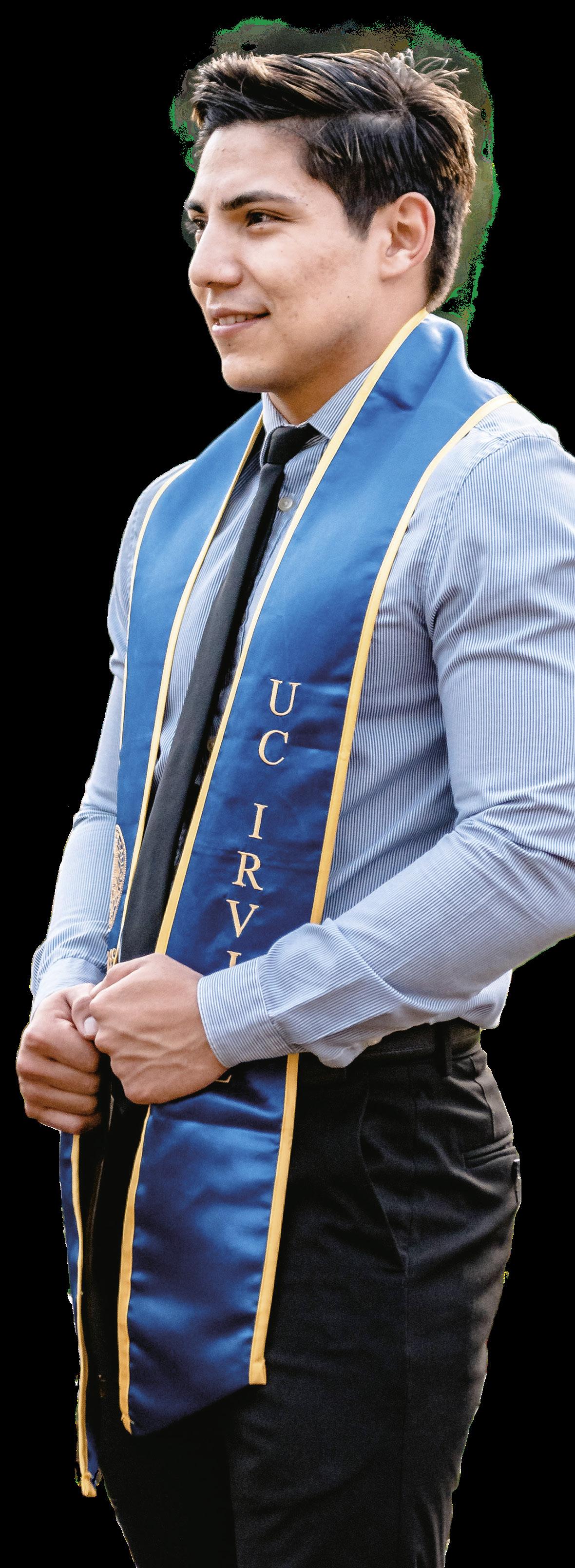

by David Brent Spight, Director of Undergraduate/Undeclared Advising, UC Irvine
The Undergraduate/ Undeclared Advising Program (U/U) at the University of California, Irvine assists students without a declared major or in transition between majors with the development and implementation of informed decisions about their educational, career, and life goals. The aim of the U/U Program is to help students make wellinformed choices of a major aligned with who they are and want to be and how to get there.
Students in U/U receive quarterly individualized assistance from an assigned professional advisor to help them explore various educational options at UCI, become more aware of their interests, values, skills, and abilities, and implement a plan toward achieving their personal goals. As a result, the academic advising provided in U/U will go well beyond simply discussing what classes to enroll in each quarter.

The U/U professional academic advisors are knowledgeable about each of the majors offered at UCI and the requirements for successfully transitioning into those majors. Recognizing the importance of the advisor-student relationship, students who are exploring their options at U/U can change their minds about what they might want to major in multiple times without having to change advisors. The U/U advisors are also well versed in resources to help students, opportunities for students to be engaged in their education at UCI, and pathways to degree completion.
Some of the programs and services, beyond the advising provided by the student’s assigned advisor, offered through U/U include:
UUMP (Undergraduate/Undeclared Mentoring Program)
In addition to an ongoing mentoring relationship, the UUMP (U/U Mentorship Program) hosts events each quarter to strengthen relationships between mentors and mentees. Some events will be dedicated to academic success topics, while others will be solely for forming interpersonal connections and having fun!
We are a small, welcoming community and an elite educational program within a larger university. Our students have the opportunity to be mentored by our amazing staff. Over 60% of students change their majors and come to U/U because we provide the flexibility and guidance necessary to succeed at UCI.
University Studies 1 is a course designed to assist incoming firstyear students in transitioning to the university. Students will learn the necessary knowledge, skills, and resources to develop a sense of purpose about their place at the university and their future goals and aspirations.
U/U ZotBlog
4-5 New first-year U/U students write about their experiences as first-year students in the Undeclared program at UCI.
Name: Katie Calderon
Major: Education Sciences
Pronouns: she/her
Class of: 2025
When I first came to UCI, I came in as an undeclared major. As a firstgeneration Latina student, I remember feeling confused and stuck on what career path to take, as many outsiders had opinions on different majors. I wanted to explore the various majors and classes offered at UCI to see what best fit my interests, as well as my strengths and weaknesses. In my first quarter at UCI, I realized that I was not a STEM person, and those classes were not the ones that caught my interest.
When I took my first education class in the winter quarter, it was more and everything I had hoped for. I was more engaged, interested, and passionate about what I was learning. Declaring my Education Sciences major did not come easy, though. I still felt unsure as many outsiders would comment that teachers aren’t appreciated enough and the pay was not good. These factors would scare me as it was an environment I would be entering and a job I would need to live life. But, as time went on, the classes I took, the professors I had, and my personal experiences in the field, I realized that it was the major for me.
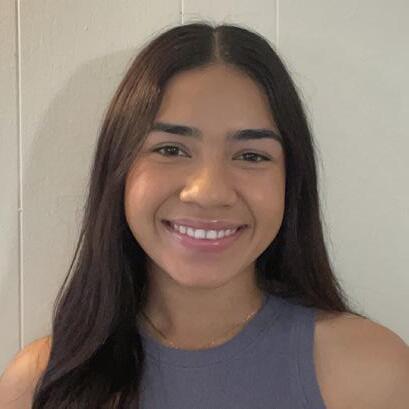
UCI’s Undergraduate/ Undeclared Advising Program supported me throughout my journey by providing me with support, guidance, and reassurance. I was given an incredible mentor who would check up on me and validate any questions, concerns, or feelings I had. My mentor was the reason behind my involvement on campus and mentoring other students. The program allowed me to find a community of people who were first-generation students and were away from home for the first time.
Name: Daniela Gonzalez Villatoro
Major(s): Psychology & Political Science (double major)
Pronouns: she/her
Class of: 2026
In high school, I took a psychology course, and from that point forward, I knew it was something that I would potentially want to major in. I loved learning about how people work, and the concepts of motivation and intention were of great interest to me from both a biological and social
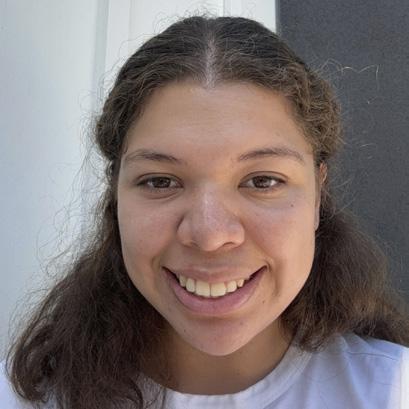
perspective. Around this time, I was also getting more invested in politics and history, which made me consider majoring in political science instead. With that said, I applied everywhere and subsequently entered UCI undeclared because I did not want to tie myself down to one major. I knew how common it was for people to change their minds, and I wanted to explore all the options I was considering at the time without feeling restrained. As the firstborn daughter to immigrant parents, there’s been a lot of pressure from all directions to pick a “good” major, which is a distinction largely reserved for STEM majors and, for a while, I felt trapped because what others wanted from me was not what I wanted for
myself. However, UCI’s Undergraduate/ Undeclared Advising Program was very helpful and supportive throughout the process of choosing a major. My advisor provided me with a list of resources, classes, and involvements I could look into to help narrow down my interests and gain experience in the areas I was considering. The department also likes to remind students that choosing a major is not necessarily a major decision, which is a mindset that gave me the reassurance I needed to figure out what I wanted. In the end, I found myself liking both psychology and political science to the extent that I didn’t want to choose one over the other, and, with encouragement from my advisors, I declared both.
by Alondra Garcia, Director, K-16 Career Pathways, UC Irvine
How are you feeling? Are you excited about all the major options you learned about within this edition? In this 5th edition of the Special Edge, you had the opportunity to learn about majors in the Henry Samueli School of Engineering, School of Law, and Undergraduate/Undeclared.
One of the key takeaways you learned is the importance of choosing a major of interest to YOU! As you go into this exciting next step of your educational journey, below is some advice to consider.
f Explore all your interests; gaining more knowledge and first-hand experience is a great way to narrow down your interests and possible major options.
f Reflect on your values and hobbies; let that be your guiding factor.
f Research the majors offered within the institutions you are interested in attending.
f Participate in opportunities such as events, summer programs, clubs, job shadowing, and internships.
f It is okay to choose to be undecided, undeclared, or changing your major selection.
In our future special editions, we will continue highlighting other schools at UC Irvine, the majors within them, and student testimonials to help prepare you for this exciting next step of your educational journey.
Remember, many majors can lead to similar careers, focus on YOU and you will eventually find your major of interest. Now that you have read through the magazine, we encourage you to use the following reflection questions to help guide your thinking and to begin to take the necessary steps toward choosing a major that is right for YOU!
What are 3 things that inspire and/or interest you?
What are 3 values that are important to you?
What academic subject(s) do you enjoy learning about?
What skills do you consider personal strengths?
(Reflect on your experiences in and outside of the classroom)
What are some potential majors that align with your values, interests and/or skills?
What is your next step in exploring a possible major? (Refer back to the advice above)
If you know you want to go to UC Irvine but you are unsure of what to major in, there is always the option to apply as Undecided/Undeclared. For more information, visit: https:// uu.uci.edu/prospective-students/beinguu-at-uci/
Three out of every four students who starts college each year has some level of uncertainty about their major. Students who start undeclared are more likely to graduate than students who start with a declared major.
Over 90% of employers do not care what your major is, but they do care that you earn a degree and gain particular career transferrable skills. You gain those skills through your experience as an undergraduate at UC Irvine in any major.
Nestled in the rolling coastal foothills of Orange County and five miles from pristine beaches, UC Irvine is home to global companies, a national airport (SNA), world-class performing arts venues and shopping centers, and nearby major league sports teams.
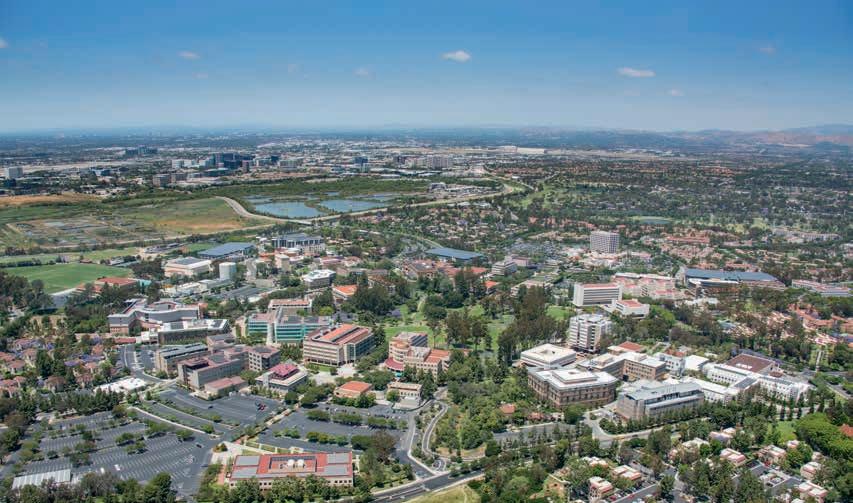
THE EDGE
Special Edition | Issue 5 | 2024
Editors:
K-16 Career Pathways

Helpful Internet Resources https://cfep.uci.edu/the-edge/
Alondra Garcia, Director, K-16 Career Pathways, UC Irvine
Chelsea Ahn, M.Ed., Specialist, K-16 Carer Pathways, UC Irvine
Kasandra Tong, M.A. Specialist, K-16 Career Pathways, UC Irvine
Contributors:
Alondra Garcia, Director, K-16 Career Pathways, UC Irvine
Analía E. Rao, Executive Director, Henry Samueli School of Engineering, UC Irvine
Ashley Cheri, Ed.D., Manager of P-20 Programs, Center for Educational Partnerships, UC Irvine
Claudia Muro, Program Coordinator, Community College Programs, UC Irvine
Daniela Gonzalez Villatoro, Student, School of Social Sciences, UC Irvine
David Brent Spight, Ed.D., Director of Undergraduate/Undeclared Advising, UC Irvine
Dayana Rivas, Assistant Director, Henry Samueli School of Engineering, UC Irvine
Emmanuel Miranda, former Specialist, EAOP, UC Irvine
Jody Cajudo, M.S., former Program Coordinator, EAOP, UC Irvine
Jonathan Caceres, J.D., Student, School of Law, UC Irvine
Katie Calderon, Student, School of Education, UC Irvine
Leyla Riley, Director of Outreach, Henry Samueli School of Engineering, UC Irvine
Miguel Angel Guzman, Student, Henry Samueli School of Engineering, UC Irvine
Vanessa Renderos, Student, Henry Samueli School of Engineering, UC Irvine
Design by: m2dg, inc. www.m2dg.com
Publication by:
University of California, Irvine | Center for Educational Partnerships | Office of Educational and Community Partnerships
Stephanie Reyes-Tuccio, Ph.D., Vice-Provost for Educational and Community Partnerships, UC Irvine
Santana Ruiz, M.Ed., Executive Director, Center for Educational Partnerships, UC Irvine
Ashley Cheri, Ed.D., Manager of P-20 Programs, Center for Educational Partnerships, UC Irvine